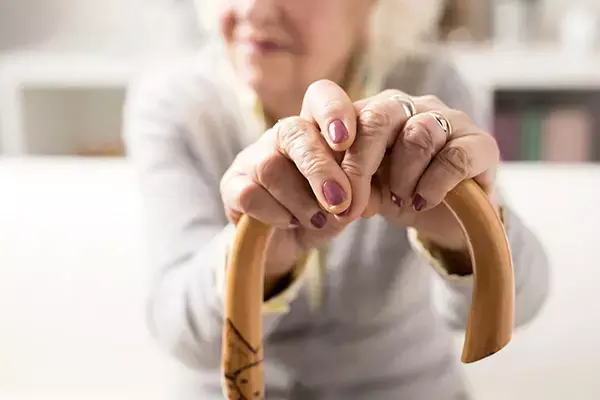- Home
- Medical news & Guidelines
- Anesthesiology
- Cardiology and CTVS
- Critical Care
- Dentistry
- Dermatology
- Diabetes and Endocrinology
- ENT
- Gastroenterology
- Medicine
- Nephrology
- Neurology
- Obstretics-Gynaecology
- Oncology
- Ophthalmology
- Orthopaedics
- Pediatrics-Neonatology
- Psychiatry
- Pulmonology
- Radiology
- Surgery
- Urology
- Laboratory Medicine
- Diet
- Nursing
- Paramedical
- Physiotherapy
- Health news
- Fact Check
- Bone Health Fact Check
- Brain Health Fact Check
- Cancer Related Fact Check
- Child Care Fact Check
- Dental and oral health fact check
- Diabetes and metabolic health fact check
- Diet and Nutrition Fact Check
- Eye and ENT Care Fact Check
- Fitness fact check
- Gut health fact check
- Heart health fact check
- Kidney health fact check
- Medical education fact check
- Men's health fact check
- Respiratory fact check
- Skin and hair care fact check
- Vaccine and Immunization fact check
- Women's health fact check
- AYUSH
- State News
- Andaman and Nicobar Islands
- Andhra Pradesh
- Arunachal Pradesh
- Assam
- Bihar
- Chandigarh
- Chattisgarh
- Dadra and Nagar Haveli
- Daman and Diu
- Delhi
- Goa
- Gujarat
- Haryana
- Himachal Pradesh
- Jammu & Kashmir
- Jharkhand
- Karnataka
- Kerala
- Ladakh
- Lakshadweep
- Madhya Pradesh
- Maharashtra
- Manipur
- Meghalaya
- Mizoram
- Nagaland
- Odisha
- Puducherry
- Punjab
- Rajasthan
- Sikkim
- Tamil Nadu
- Telangana
- Tripura
- Uttar Pradesh
- Uttrakhand
- West Bengal
- Medical Education
- Industry
Frailty can effectively indicate adverse perioperative outcomes in percutaneous nephrolithotomy: Study

A recent study published in Urolithiasis journal revealed that frailty is a major predictor of negative perioperative outcomes in older patients undergoing percutaneous nephrolithotomy (PCNL) which highlights the critical need to identify and address frailty in this population.
Kidney stones represent a significant health concern, particularly among older adults, with a notably higher prevalence in males over the age of 60. The development of kidney stones is influenced by several risk factors, including male sex, hypertension, obesity, diabetes, and various lifestyle choices. The complications associated with kidney stones can be severe, leading to conditions such as cardiovascular disease, chronic kidney disease, and end-stage renal disease. Among the treatment options, percutaneous nephrolithotomy stands out as the preferred method for managing complex kidney stones due to its high success rate and its ability to achieve a stone-free state, outperforming other treatments like shockwave lithotripsy and ureteroscopy.
The primary objective of this study is to assess the impact of frailty on perioperative outcomes in patients aged 60 and above who underwent PCNL. To achieve this, the study analyzes data from the US Nationwide Inpatient Sample (NIS) database, covering the years 2010 to 2020. The goal is to understand how frailty influences key perioperative outcomes within this older patient demographic.
The study employs a comprehensive methodology, classifying patients into low, medium, and high frailty risk groups using the hospital frailty risk score (HFRS). A total of 30,829 patients were included in the analysis, with the study focusing on various outcomes such as in-hospital mortality, unfavorable discharge, prolonged hospital stays, transfusion needs, hospital costs, and complications.
The findings of the study reveal that high frailty risk is significantly associated with poorer perioperative outcomes. Specifically, patients with a high frailty risk exhibited increased rates of in-hospital mortality, higher rates of unfavorable discharge, longer hospital stays, a greater need for transfusions, more complications, and higher total hospital costs. Frailty emerges as a strong predictor of adverse outcomes, highlighting the need for meticulous management of frail older patients undergoing PCNL.
In discussing the results, the study underscores the critical importance of recognizing and managing frailty in older patients to improve perioperative outcomes. Incorporating frailty assessments into preoperative evaluations could significantly enhance the predictive accuracy for in-hospital mortality and other complications, thereby improving patient care and outcomes.
Overall, frailty is a significant prognostic indicator of adverse outcomes in older patients undergoing PCNL. It is essential for medical professionals to consider frailty when planning and executing treatment for kidney stones in older adults to mitigate risks and enhance recovery. This study emphasizes the critical role of frailty in determining surgical outcomes, suggesting that tailored care plans are vital for this vulnerable population.
Source:
Chien, Y.-C., Chen, P.-H., & Chang, Y.-J. (2024). Impact of frailty on perioperative outcomes following percutaneous nephrolithotomy in older persons: evidence from the US Nationwide Inpatient Sample. In Urolithiasis (Vol. 52, Issue 1). Springer Science and Business Media LLC. https://doi.org/10.1007/s00240-024-01595-y
Neuroscience Masters graduate
Jacinthlyn Sylvia, a Neuroscience Master's graduate from Chennai has worked extensively in deciphering the neurobiology of cognition and motor control in aging. She also has spread-out exposure to Neurosurgery from her Bachelor’s. She is currently involved in active Neuro-Oncology research. She is an upcoming neuroscientist with a fiery passion for writing. Her news cover at Medical Dialogues feature recent discoveries and updates from the healthcare and biomedical research fields. She can be reached at editorial@medicaldialogues.in
Dr Kamal Kant Kohli-MBBS, DTCD- a chest specialist with more than 30 years of practice and a flair for writing clinical articles, Dr Kamal Kant Kohli joined Medical Dialogues as a Chief Editor of Medical News. Besides writing articles, as an editor, he proofreads and verifies all the medical content published on Medical Dialogues including those coming from journals, studies,medical conferences,guidelines etc. Email: drkohli@medicaldialogues.in. Contact no. 011-43720751


